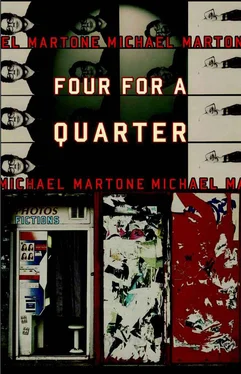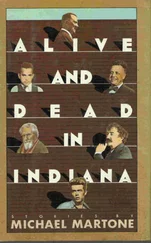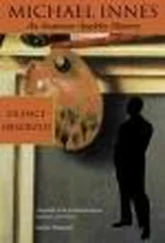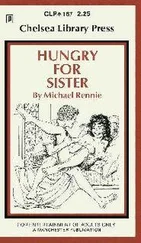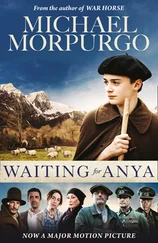16
The rest is peanuts. Henry Ford rebuilt George Washington Carver's slave cabin in the village. The father of the peanut. It's out there somewhere in the darkness coming up. I've been in some bars where you are encouraged to crack open the shells, pop the nuts in your mouth, and then throw the shells on the floor to be trampled into a fine mulch and create studied roadhouse neglect. These are chain stores, franchised bars pretending they are the honky-tonks they are replacing. Rough and tumble. The slave cabin's dirt floor has dirt flown in from the dirt floor of a slave cabin in Missouri. Says so. Mr. Peanut with the hat and spats, slumming groundnut all up in the canopy of the trees. My mother always said to wash behind my ears. Dirt enough to grow peanuts. No, potatoes. If the bar was stationary we would be buried up to our ears in all the crap we've hatched, but this place keeps moving so nothing settles, little accumulates, even the air is spun dry, squeegeed of smoke and the stale, leftover conversations. And the words all picked out of their shells, nutmeats, cute meets, a current of errors in the circulating air. That's why they do it — set this ship in motion. A slather of blather. A channel of chat debris. Keep the ball rolling. When the only way to go is down, it's nice to have this simulation of perpetual motion, this gyroscopic story, the top story of the building. Shush. Listen. It is Smokey now. The air's gone out of the room. Motown in Motown at last. Tracking tears. The M of the labels could be the silhouettes of tall towers, each with their crow's nests of restaurants and/or bars circling, circling. Do you even remember records? Records with the skips and pops as the needle tracked the tracks through the wax. It wasn't wax but vinyl, and that attracted the dust that caused the skips and pops. There was that old notion that each time you played a song a little bit of sound was lobbed off by the slicing stylus, the groove hollowed out by listening, the emotion of it dredged away, a deep channeled silence to follow. One last drink? One for this endless road? The waiter has a bowl of popcorn, the kernels turned inside out. Look closely, that's what happens. Mix it in with the peanuts and you have a poor man's Cracker Jack without the sugar coating. And since we are being so healthy, how about this round a Bloody Mary? The museum building — here it comes again, there — is meant to look like Independence Hall but, I don't know, twenty times as big. It is a hulk in the night, a wrecked ruin. The night out there is vinyl black, all swallowed up, turned inside out. The museum has galleries of appliances — washtubs and dryers, TVs and radios, vacuum cleaners, vacuum tubes, and all the gramophones and phonographs, stereos and eight tracks, and quadraphonic components hooked up to turntables, tape decks, reel-to-reel. One of the houses in the Village is the Robert Frost House, the poet of walls and roads, and when I was a kid on the tour I needled the guide about its history. Had he written those poems there? The guide had about enough of me, W. C. Fielded me to the side. “Look, kid,“ he said, “Ford was just collecting houses. He needed an example of Greek Revival and found this house in Ann Arbor.“ It did look like a little temple. Ford found out later that Frost lived in it for a year when he taught at UM. It is all a black hole of memory. The cheap Cracker Jack peanuts offer no surprises. They seem to be dividing, multiplying. The miracle of loaves and fishes. You can't eat just one. Never enough and never ever over with them. There's Detroit reborn. The lights in the towers are all lit up like crosswords, but the dark squares are winning out. The towers look like they are burned out, like the light has escaped into the night, leaving behind an empty husk. Hey, I'm getting hungry. You wanna dance? The dance floor doesn't move. And no one dances. It's Motown all night. Every night is Motown in Motown. It's a miracle, that music. Made for the night. This town. Pulses of it heading out into outer space, a kind of throbbing beacon in the night, that rhythm records made when the needle made its way to the end, that endless hiss, the needle skating back and forth and around and around that final margin of black ice. Down below, my favorite lake, St. Clair, a dollop. It is a great lake all right. I eat the celery. I can appreciate the utility of it, the celery, consuming the utensil used for consuming. It's good, all sopped, a science experiment where you can trace the gravity-defying osmosis, the juice sluiced up the straw of the stalk, stalking. You forget you're moving. Over there is over there and up there is up there, all space. And I have taken a turn in Seattle, geared inside the Space Needle that looks like a spaceship going nowhere fast. It creates its own gravity, a kind of saucer hovering above the clouds that coat the city below. Those same clouds seem to levitate the whole Cascade Range, off in the distance. They float, all of them, a few hundred feet off the floor of the forest. We seemed to be worming our way through space in that needle, a Phillips-head screw biting into the air, the atmosphere. This is where I get off. I am getting dizzy. Stop the top. As the record winds toward its finish, it has to go faster. Circles inside of circles. Until. Space. Silence. An empty empty place. And you. You, away, way over there, drinking all this, all of it, all in.
INTAKE
In the back of the motor home, the men played euchre loudly, trumping quickly and tossing in the hand after the first two plays. Phil and Bill Erhman looked like bowers themselves, one full-face, one profile. They were not partners at the table and argued over a loner and the number of points allowed. They were in the asphalt business, entertaining clients today, contractors mostly or state highway inspectors. Whenever the motor home hit a new patch of pavement or a new stretch of concrete on the interstate, they would all start up, and listen.
“Shhh. Shhh. Shhh,“ Phil would say, concentrating on the pitch of the tires. “Marion. Marion, Indiana.“ And someone would look out the window, and there we would be, passing Marion, Indiana.
My father, sitting across the tiny galley table from me, was explaining something about football with coins, all heads-up and vibrating from the road.
“The belly series,“ he said, “depending upon everyone doing the same thing every time, every play. Faking is the same as carrying the ball. Always covering the belly.“ My father had played football with the Erhmans on the 1952 mythical state champion team of Indiana. Father had been the quarterback of the full-house backfield. The Erhmans were the halfbacks. The fullback, A. C. Russian, was in prison.
“One game I started limping after each play as I carried out my fake,“ Father said. “Watching the end every play, sooner or later, I lulled him to sleep. He forgot about me. He thought I was really hurt. And on the next play I kept the ball, put it on my hip, and rolled right around him.“ He scooted the dime toward me with his index finger.
We traveled down the interstate from Fort Wayne to Indianapolis. We hit a bad bit of road and a hollow ringing bridge. “Muncie,“ Phil shouted from the back, and there was Armick's Truck Stop. Its lights were gravy-colored through the tinted window. Many trucks squeezed together in the lot, lights out, exhausts idling. It was still early.
This was the second weekend of time trials, the third day of the Indianapolis 500. Father took this trip every year with his friends. They started with a party the night before and left early in the morning. They continued to drink, tell stories, and do business. The Erhmans like to sell asphalt at night, when the patching and puckering of the road was invisible. We had to stand up in the motor home every time we passed over a section of the road they had paved so that we could feel it through our feet. “Take your shoes off. Walk around.“ After last year's major accidents at the track, they hoped to place a bid with the management to resurface the whole course. Father had nothing to do with the business but went along for the ride. To see the trials.
Читать дальше
